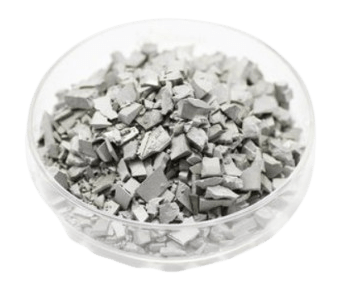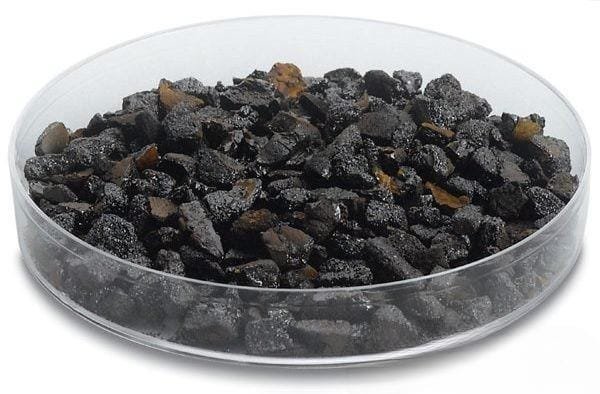Menu
MetalsTek Engineering is a leading supplier of Ruthenium Evaporation Materials. We can provide Ruthenium pellets, Ruthenium pieces, and Ruthenium powder for sale; the purity is 99.95%.

Material: Ruthenium, Ru
Purity: 99.9%, 99.95%
Form: Pieces, Granules, Powder, Can be Customized
Size: 2~4mm, Can be Customized

Material: Strontium Ruthenate
Purity: 99.9%
Form: Pellets, Pieces, Granules, Powder, Can be Customized
Size: Dia. 1.0″ /2.0″ /3.0″ * Thick. 0.125″ /0.25″, Can be Customized
Ruthenium Evaporation Materials are crucial in various applications such as optics, wear protection, decorative coatings, and displays. These materials are available in different forms, purities, sizes, and prices to cater to specific needs. Ruthenium is commonly used in electrical contacts, computer microchips, semiconductors, and magnetic storage media, where it is evaporated under vacuum conditions to achieve desired properties. With an annual production of about 20 tons, most ruthenium is utilized in wear-resistant applications and thick-film resistors due to its unique properties. The careful handling of ruthenium evaporation materials during packaging ensures their integrity and effectiveness in creating protective and decorative coatings.
Ruthenium is known for its outstanding resistance to corrosion and excellent thermal stability. Its melting point is approximately 2,334°C, and its boiling point is about 4,150°C. These high thermal properties make Ruthenium ideal for use in high-temperature environments. Moreover, Ruthenium films are known for their excellent electrical conductivity, hardness, and chemical stability, making them beneficial in various industrial applications.
Material Type | Ruthenium | Coefficient of Thermal Expansion | 6.4 x 10-6/K |
Symbol | Ru | Theoretical Density (g/cc) | 12.3 |
Atomic Weight | 101.07 | Z Ratio | 0.182 |
Atomic Number | 44 | E-Beam | Poor |
Color/Appearance | Silvery White Metallic | Temp. (°C) for Given Vap. Press. (Torr) | 10-8: 1,780 |
Thermal Conductivity | 120 W/m.K | 10-6: 1,990 | |
Melting Point (°C) | 2,310 | 10-4: 2,260 |
Production and Purity Considerations
The production of Ruthenium Evaporation Materials requires meticulous control over purity and physical form. The purity of Ruthenium significantly affects its evaporation behavior and, consequently, the quality of the thin films produced. Evaporation materials typically come in various forms, including pellets, granules, and pieces, to suit different evaporation techniques and equipment.
Challenges and Solutions
One of the challenges in using Ruthenium as an evaporation material is its high melting point, which requires specialized evaporation equipment capable of reaching and sustaining high temperatures. Electron beam (e-beam) evaporation is commonly used for Ruthenium because it provides the necessary energy density for efficient evaporation of high-melting-point materials.
Furthermore, controlling the deposition process is vital to achieving the desired thin film characteristics. Parameters such as deposition rate, substrate temperature, and vacuum quality must be carefully optimized to produce films with the required thickness, composition, and physical properties.
Ruthenium and its compounds have various applications in different industries. In the electronics industry, they are commonly used to produce electronic components such as thin-film resistors and capacitors. Ruthenium oxide is particularly beneficial for its exceptional electrical properties.
Ruthenium also significantly manufactures advanced data storage solutions, including hard disk drives (HDDs). It is used as an interlayer to enhance the magnetic properties of the recording layers.
Additionally, due to its excellent catalytic properties, Ruthenium is employed in electrochemical applications such as electrodes in electrochemical capacitors and as catalysts in fuel cells.
Finally, Ruthenium’s high reflectivity in the ultraviolet to the infrared spectrum makes it useful for optical coatings, enhancing the durability and performance of optical devices.
Our Ruthenium Evaporation Materials are clearly labeled externally to ensure efficient identification and quality control. To prevent any damage during storage or transportation, we take great care.